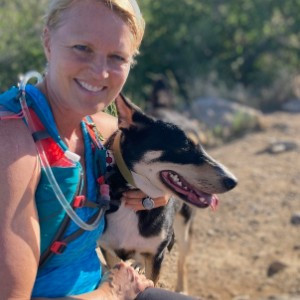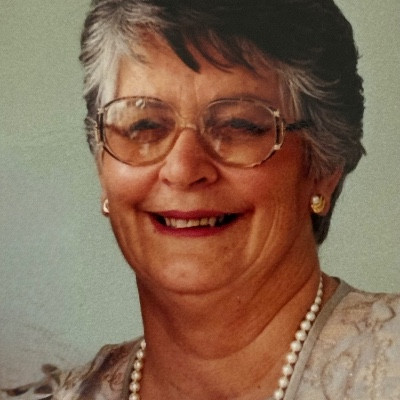Help us give more people with Parkinson’s the support of a Parkinson’s Specialist Nurse like Lauren.

 Anonymous just donated $1,074
Anonymous just donated $1,074 Carolyn Patman just donated $106.12
Carolyn Patman just donated $106.12 Sandra just donated $120
Sandra just donated $120 Jon just donated $323
Jon just donated $323 Tzavaras Family just donated $106.12
Tzavaras Family just donated $106.12 Karen McLaren just donated $211
Karen McLaren just donated $211 Anonymous just donated $55
Anonymous just donated $55 Jim just donated $20
Jim just donated $20 Harry & Iris just donated $50
Harry & Iris just donated $50 Ren just donated $100
Ren just donated $100 Statos just donated $50
Statos just donated $50 Christos & Joanna just donated $100
Christos & Joanna just donated $100 Gina just donated $50
Gina just donated $50 Nick just donated $300
Nick just donated $300 Dimitra just donated $100
Dimitra just donated $100 ximei just donated $106.12
ximei just donated $106.12 Narelle Morrow just donated $54.12
Narelle Morrow just donated $54.12 June just donated $106.12
June just donated $106.12 David just donated $1,000
David just donated $1,000 Jenny Russell just donated $158.25
Jenny Russell just donated $158.25
“When I look at my role, it’s about supporting patients and their carers and families to give them the best day-to-day life they can have.” – Lauren Hogan, Parkinson’s Specialist Nurse
When Lauren Hogan saw the position of Parkinson’s Specialist Nurse advertised in her region just over a year ago, she immediately felt she could be the right person for the job. A former surgical nurse and clinical educator, she’d also completed specialist and post graduate studies in Parkinson’s.
“I thought that the role really needed a local nurse. Not just because I know a lot of the community
members, but also because I know a lot of the health professionals here.”
But far too many people living with Parkinson’s in our regional areas have no Lauren to help them.
Most of their neurologists work in major cities, a long way away. And if you have any experience of
Parkinson’s, you know that new and puzzling symptoms don’t wait for a six-monthly check-up.
It’s why Parkinson’s NSW is working to help fund our Parkinson’s Specialist Nurse. I’m delighted to say that, thanks to your help, we now have Lauren in place for 2023, alongside seven specialist nurses in our team. But we need help to maintain these roles, as we work towards funding more in the future.
Will you help us today with a gift so we can have nurses like Lauren to be there for
people living with Parkinson’s, when they really need them?
As someone who cares about people living with Parkinson’s, you may already know what an insidious and complex disease it is.
But when people are first diagnosed, most know very little about what’s ahead. Lauren encounters this time and again when a new patient is referred. She calls it the Parkinson’s Iceberg.
“At the tip of the iceberg is what most people think of when they think of Parkinson’s, the tremor and the rigidity. But below the water, we have all these non-motor symptoms that can affect the patient in their day-to-day life. And no two patients are the same.”
Lauren says many new patients simply don’t connect a lot of their symptoms, like constipation or anxiety to their diagnosis.
“Once we look at the big picture and see that symptom was Parkinson’s as well, it can give patients some relief, they can feel like, it wasn’t just me, it’s this disease.”
Navigating the world with this disease can be utterly overwhelming. A specialist nurse like Lauren is
not only able to help people living with Parkinson’s understand what is happening but is able to respond
quickly to their ever-changing needs.
In many regional areas, however, patients have no local professional support at all. They have to rely on their GP or their neurologist, who is often based hours away. As Lauren says,
“That kind of travel can be hugely stressful for somebody with mobility issues and various other conditions, such as needing to have a toilet close by. I can be a bridge between the patient and the neurologist.”
She shares one story about a patient in an aged care facility, whose daughter contacted her, worried about her mum’s condition. Lauren made a house call, did an assessment, and recommended increasing a certain medication, in consultation with the patient’s neurologist. But when the local GP refused to prescribe the medication without a further visit to the neurologist, the daughter rang Lauren again in great distress.
Lauren was able to get in touch with the neurologist and explain the issue. Thanks to her expertise, the
problem was solved in a day, instead of dragging out for weeks, adding to the patient’s suffering and the family’s stress.
“I followed up a month later and there was a great improvement in my patient’s mobility, she’d had a lot of trouble getting out of bed to go to the toilet and by then, she was able to do it herself with supervision.” – Lauren
Every one of our nurses like Lauren have similar stories – they really do make a meaningful difference to the daily lives of people with Parkinson’s.
With your help today, we can fund more positions like Lauren’s – and give patients the skilled,
compassionate and responsive care they deserve.
Lauren says what makes her role so rewarding is seeing how even small things she can do can make a meaningful difference to her patients’ lives. Without her, many would simply suffer alone and in silence.
“Just suggesting how it might be easier to get out of bed, or helping a patient connect to a Support Group – so many patients come back to me and say, “Oh, that’s really helped. It’s made me feel so much better.”
We hear every week from people living with Parkinson’s and their families how valuable our Parkinson’s Specialist Nurses are to their community. We know how much roles like Lauren’s matter.
We also know that in the coming years, the numbers of people living with Parkinson’s in Australia will only rise.
We urgently need more highly-trained Parkinson’s Specialist Nurses like Lauren.
We need you to help us fund Parkinson’s Specialist Nurses like Lauren in regional areas.
I hope you’ll give a gift today of to ensure we can keep putting more Parkinson’s Nurses in the community.
As Lauren says, “Even something small can make a big difference.”
Thank you for your support.




